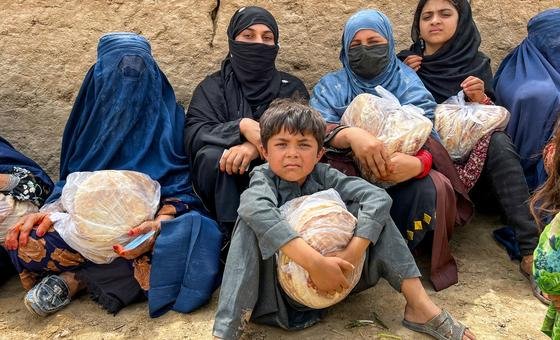Head of the United Nations Mission (UNAMA) Roza Otunbayeva informed the member states about the current situation in Afghanistan during the Security Council meeting on Thursday.
He said the Taliban administration had banned women from studying in public and private medical institutions in early December, and barring them from taking exams at the end of the semester.
“If fully implemented, it would have devastating consequences, especially for women and girls, but also for men and boys, entire communities and countries. “It denies Afghan citizens a functioning health care system that is open to all.”
He said that the ruling Taliban administration is moving forward according to the Islamic system. Afghan culture is being interpreted according to its own will and unprecedented restrictions are imposed on Afghan women and girls.
The Special Representative expressed dismay that it has now been 1,200 days since formal education for girls ceased after 6th grade. It appears that women and girls are gradually disappearing from almost all aspects of public life.
Roza Otunbayeva said that it seems that no pressure and condemnation has any effect on the ruling Taliban administration. And if this continues without thinking about the future, Afghanistan will be isolated.
“Isolation is not a solution, and we must engage and engage in confidence-building measures for the well-being of the Afghan people.”
Great crisis
Tom Fletcher, head of the United Nations Office for the Coordination of Humanitarian Affairs (OCHA), said Afghanistan was in the grip of a massive humanitarian crisis.
According to him, Afghanistan currently has the second largest humanitarian crisis in the world and half of the country’s population needs humanitarian assistance.
“The need for humanitarian assistance in Afghanistan is urgent. “In 2024, the United Nations and other humanitarian agencies will provide life-saving assistance to 18 million people across the country, including 5.1 million women and 8.3 million children.”
According to Tom Fletcher, the Taliban administration in Afghanistan has tried to interfere with aid programs and the lengthy negotiations and permitting efforts have led to delays in getting needed aid.
Under-Secretary-General Fletcher warned that limiting the education of Afghan women and girls could have severe and long-lasting effects on the health care system.
She said that because of the restrictions imposed by the law, women engaged in humanitarian aid efforts are being prevented from working.
From September to December 2024, the percentage of women prevented from going to work increased from 22 percent to 47 percent.

